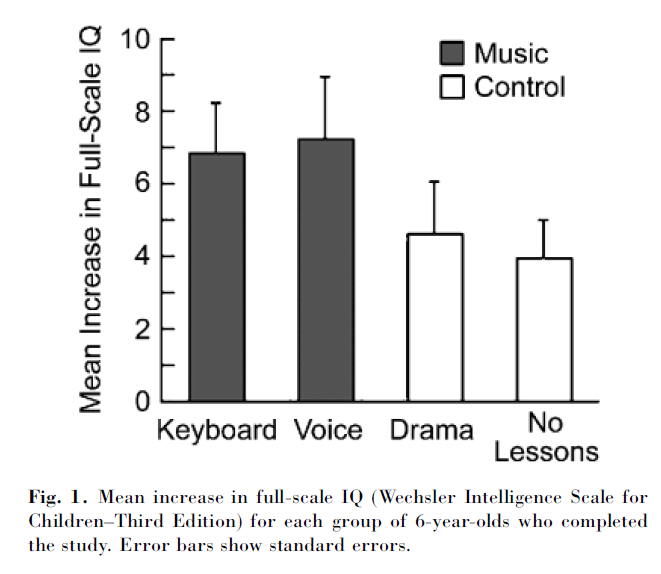Short answer
The recent literature shows mounting evidence for beneficial effects of music on cognitive abilities. The big 'but' in the issue is how specific those effects are and whether they will hold up in longitudinal studies.
Background
Great question.
Your citations provided reach back to 2006 so I thought to limit this answer using recent articles only. Overall, the beneficial effects of musical training seems quite overwhelming.
A number of papers, including reviews have shown that in kids learning to play a musical instrument
In the general adult population review reports conclude that musical training
- Enhances cognitive skills spanning executive control to creativity, albeit sometimes limited to the auditory domain (Benz et al., 2016)
- Is correlated with positive outcomes on cognitive ability (Schneider et al., 2018)
Lastly, in the elderly musical training has been shown to
However, virtually all review studies conclude that more data is needed, especially from carefully controlled longitudinal studies. Many papers are retrospectively organized, and many studies find benefits on some outcome measures, but not all. Indeed, Hille et al. (2011) say:
It is no longer the question whether or not musical training is associated with [better] cognitive abilities, because there is growing evidence that it is. An unresolved issue however, is the nature and specificity of the link.
Indeed, many primary research articles focus e.g. on auditory tasks, and not on others.
References
- Benz et al, Front Psychol (2016)
- Guo et al., Front Psychol (2018)
- Habibi et al., Annals NY Acad Sci (2018)
- Hille et al. Adv Cogn Psychol (2011); 7: 1–6
- Mensens et al., Aging & Mental Health
- Protzko, Developmental Rev (2017); 46: 81-101
- Schneider et al., J Appl Gerontology (2018)
